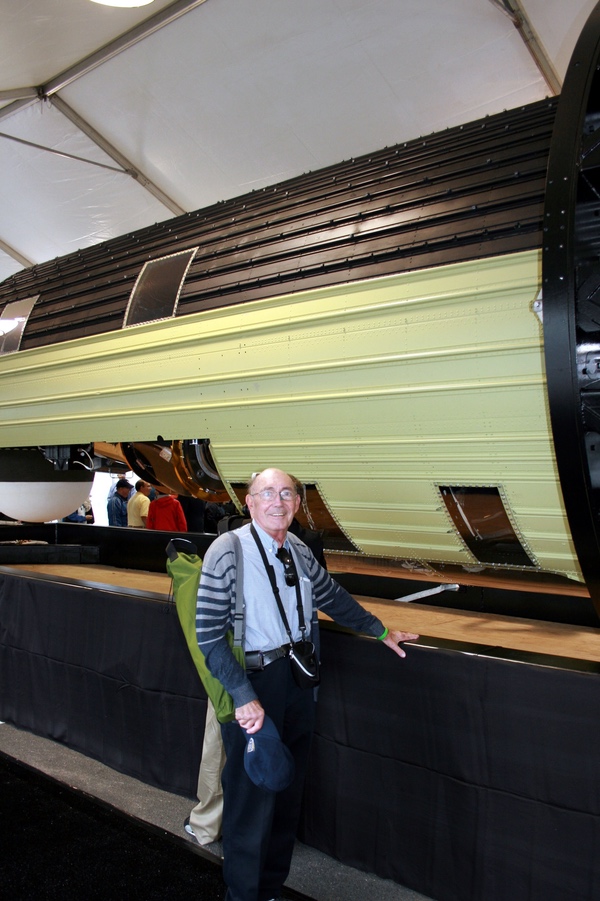Phil Pressel
|
| While at Perkin-Elmer in the mid-1960s, he was assigned to design the sophisticated camera system for the HEXAGON, which was tasked with photographing vast areas below the satellite as it traveled in a polar orbit, providing intelligence on the Soviet Union during the Cold War. |
Phil was born in Antwerp, Belgium, to Miriam and Joseph Pressel. Phil and his parents fled to France when Hitler invaded Belgium. They were in hiding until the end of the war. At one point Phil was sheltered for a time in Vourles, France, by the Sabathiers, a kind Catholic family. Phil remembered that under the cover of night men in the town would head down out of the mountains to sabotage German equipment and facilities, returning before dawn. His years in hiding from the Nazis affected him for the rest of his life.
After the war, the family immigrated to New York as his dad was hired by the United Nations as a translator. Joseph Pressel died at age 51. His mother supported the family as a seamstress and died at 104. Phil attended Stuyvesant High School, NYU, and the University of Pennsylvania. He became a mechanical engineer and, while at Perkin-Elmer in the mid-1960s, he was assigned to design the sophisticated camera system for the HEXAGON, which was tasked with photographing vast areas below the satellite as it traveled in a polar orbit, providing intelligence on the Soviet Union during the Cold War.
After his initial work on the HEXAGON camera system (which continued for nearly two decades), Phil worked on other national security programs. One of them involved designing a large missile-tracking telescope system known as “Lazy Cat” that was installed on a mountaintop in Iran and used to track Soviet missiles and rockets in flight.
Phil wrote two books: They are Still Alive, a biography; and Meeting the Challenge, a book about the HEXAGON satellite. He often spoke to groups about the Holocaust, HEXAGON, and designing instruments for space. He loved officiating track and field meets, traveling, and swimming. An organ transplant recipient, he often participated in the Transplant Games, a “celebration of life” centered on the donors and recipients of organ transplants.
I first met Phil around 2004 when one evening I received a phone call from him. He asked me if I “wrote that article about why that thing is not in the Smithsonian.” I told him I had, and he replied “I helped build that thing.” He would not say the word “HEXAGON,” which was still classified, nor even confirm that it was a satellite with a camera. He asked if I knew when the program was likely to be declassified. I told him that it would probably not happen until the 50th anniversary of the National Reconnaissance Office in 2011. He was disappointed to hear that, and mentioned that he was working on a book on his work on the program. I offered some suggestions that he try to avoid writing a dry book about engineering and try to describe the work environment, the people, and the difficulties of operating in a highly classified environment. He took my advice to heart, and when, the program was declassified in September 2011 and his book was reviewed for security purposes, he asked if I would be willing to look at the manuscript for him. I did so and was surprised that he had written an engaging and insightful book. I primarily recommended that he cut it down by about a third, and make a slight change to the title. The book was later edited and published by AIAA Press.
Phil had four children: Allan, David, and Linda; and six grandchildren: Robert, Adam, Austin, Julia, Zachary, and Elliott. He was predeceased by his son, Stephen. The “love of his life” was his wife, Pat, who lives in Massachusetts.
Note: we are using a new commenting system, which may require you to create a new account.
